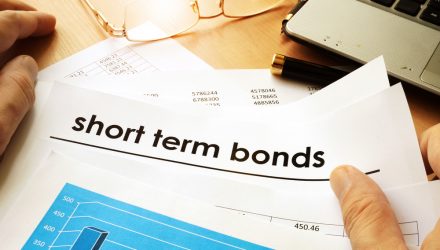Yields have been climbing, offering fixed income investors an opportunity to take advantage of bank products like certificates of deposit (CDs), but another option to consider is short-term bond funds.
With the Federal Reserve raising the federal funds rate by 50 basis points, it’s not all doom and gloom in the stock or bond market. While both assets have been heading downward in terms of prices, yields have been climbing along with inflationary pressures from the economy.
Of course, this still makes the current bond environment a tricky one to navigate. The risk in the current market can be mitigated with active management that allows for dynamic exposure to the markets. Moving from bank products to short-term bonds can open the door to higher comparable yields, while still being very conservative.
Low-Cost Active Exposure
An active approach is available with a low 0.17% expense ratio in the T. Rowe Price Ultra Short-Term Bond ETF (TBUX). The highest yield available via Bankrate is 2.25%, whereas the 30-day SEC yield of TBUX is 2.61% as of April 30.
TBUX seeks high levels of income that are consistent with low volatility of principal value by investing primarily in investment-grade, short-term securities. The fund’s fact sheet shows that the portfolio’s dollar-weighted effective maturity is generally expected to be 1.5 years or less, allowing for rate risk mitigation—a must, given the expectation of more rate hikes by the Fed.
An actively managed portfolio built on fundamental analysis, TBUX still delivers a competitive 0.17% expense ratio. Assets are never held in overly concentrated exposures but instead has a diverse portfolio spread across investment-grade U.S. corporate bonds, treasuries, and reserve assets.
“Not only are Treasury notes yielding more than CDs, but the interest is also state tax-exempt,” an AARP article by Allan Roth noted. “I think this is an option for part of a bond portfolio. Still, don’t abandon high-quality bond funds since it’s quite possible rates will decline in scenarios such as a recession.”
For more news, information, and strategy, visit the Active ETF Channel.








